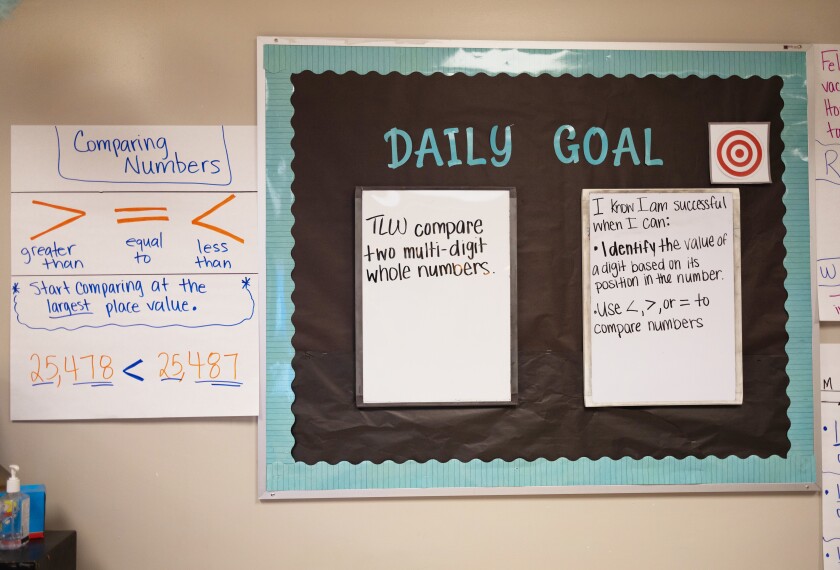Presenting math in a way that encourages a growth mindset can improve students’ motivation, finds a new study in the journal Trends in Neuroscience and Education.
Researchers tracked the brain activity of students working through standard math problems or those adapted to encourage students to believe math skills can be “grown,” or improved through experience. Researchers found stronger patterns of activity associated with motivation and engagement—shifting activity to the left side of the prefrontal cortex—in the brains of students who were working through the “growth"-adapted math problems.




